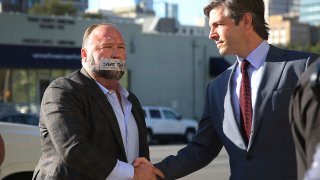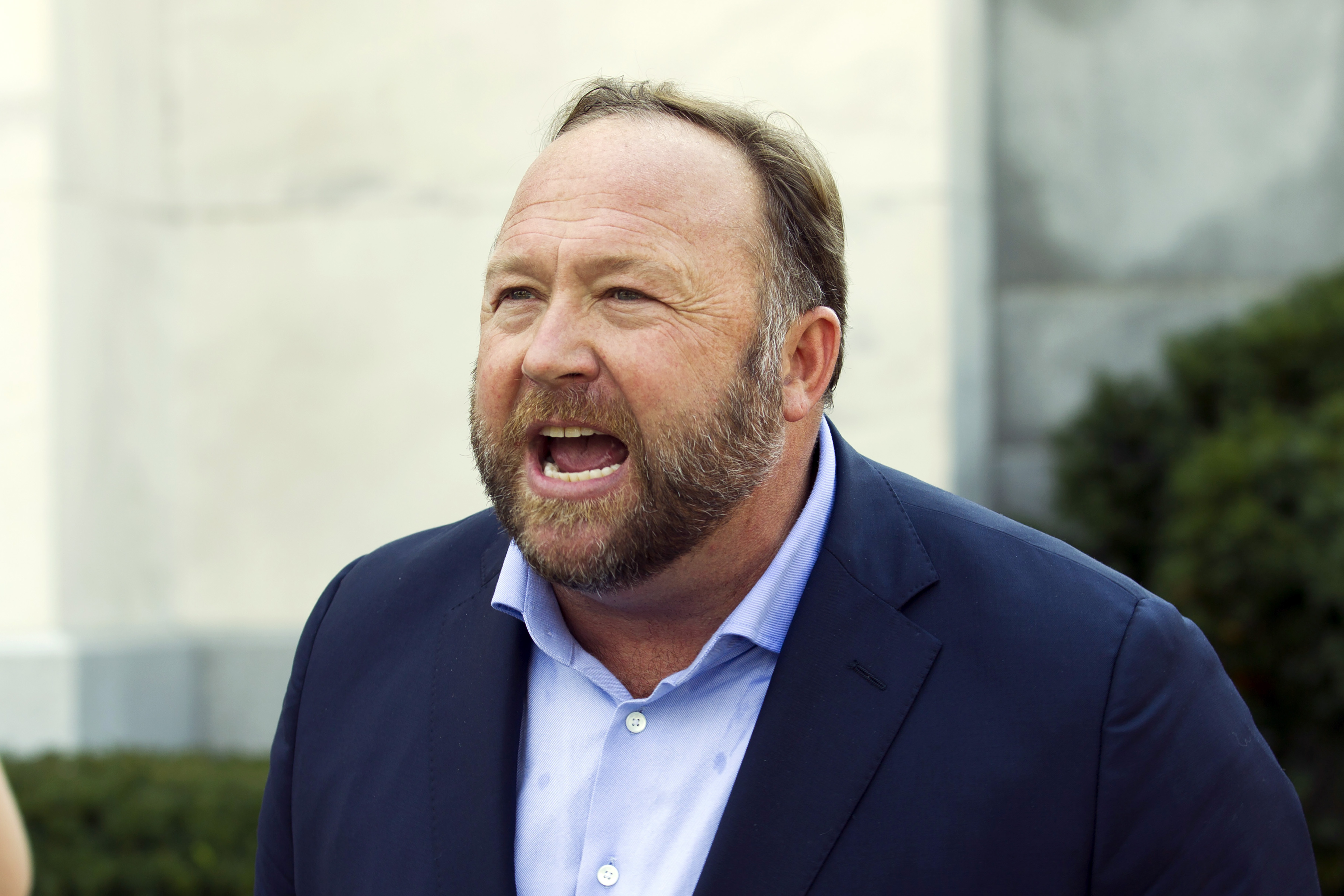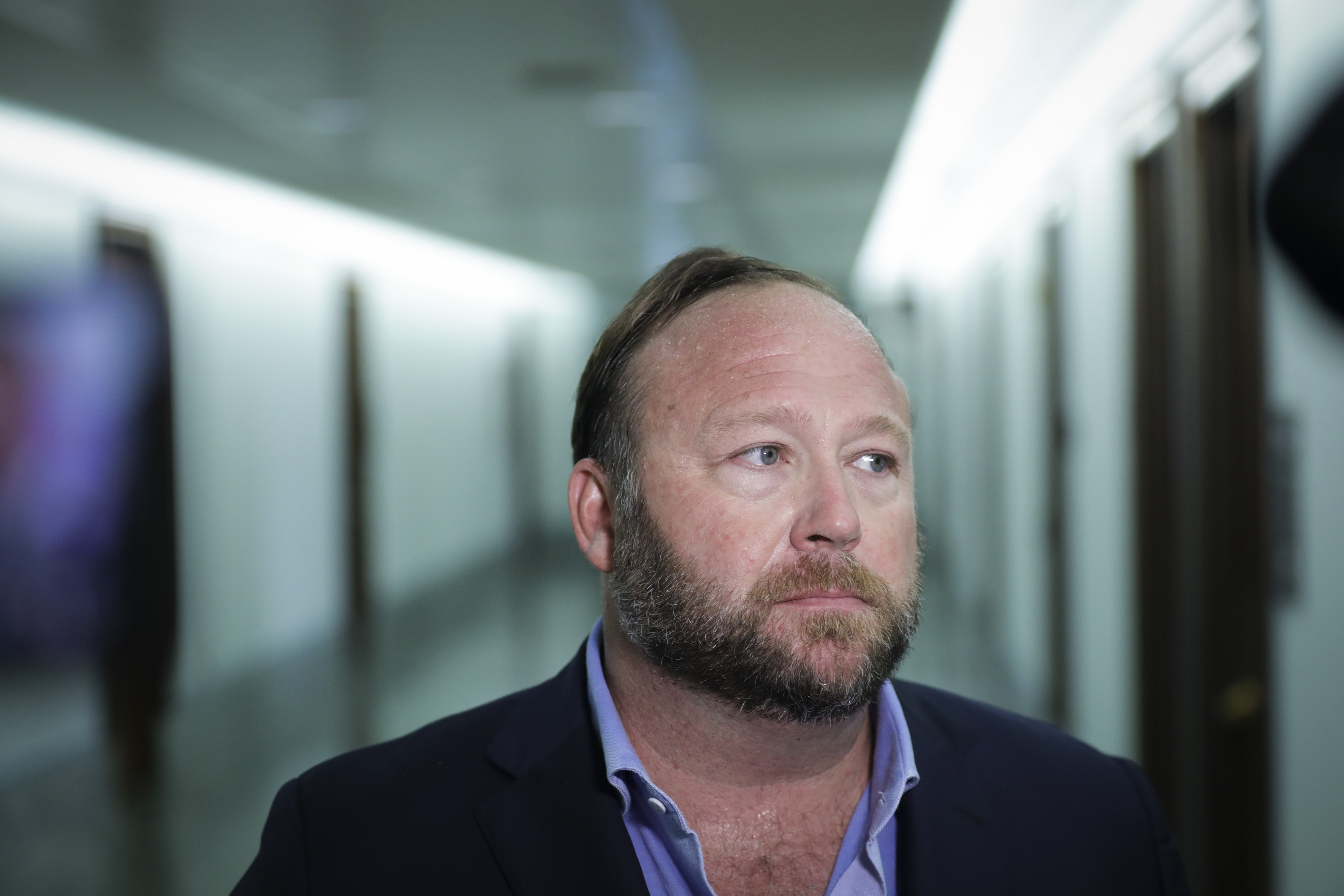
The detective who led the investigation into the 2012 Sandy Hook Elementary School attack testified Tuesday that there are three types of people who deny that it happened and harass the victims’ families: the mentally ill, those who believed bad or incomplete information, and those who knew the truth but twisted it for their own “power or money.”
Investigators put conspiracy theorist Alex Jones in that final group.
“They were the most dangerous. That’s where we put Alex Jones,” Connecticut State Police Detective Daniel Jewiss told the jury on the first day of testimony in a Texas trial to determine how much Jones, who hosts Infowars, owes for defaming the parents of one of the children who died in the deadliest school shooting in American history.
“It’s absolutely horrific the amount of trauma they’ve had to endure in the wake of having lost a loved one,” said Jewiss, who called supporting the Sandy Hook families the “most honorable” thing he’s ever been part of.
The Hurricane season is on. Our meteorologists are ready. Sign up for the NBC 6 Weather newsletter to get the latest forecast in your inbox.
Neil Heslin and Scarlett Lewis, whose 6-year-old son Jesse was killed in the attack on the Newtown, Connecticut, school, are seeking $150 million for emotional distress and reputational damage that Jones caused them, and more money in punitive damages, their lawyer, Mark Bankston, told the court during his opening statement as Jones looked on, shaking his head at times.
Read More
Jones repeatedly “lied and attacked the parents of murdered children” when he told his Infowars audience that the shooting was a hoax, Bankston said. He created a “massive campaign of lies” and recruited “wild extremists from the fringes of the internet ... who were as cruel as Mr. Jones wanted them to be” to the families of the 20 first-graders and six educators who were killed, the lawyer said.
Jones tapped into the explosive popularity of Sandy Hook conspiracy stories that became an “obsession” for the website, even years after the shooting, said Bankston, who played video clips of Jones claiming on his program that the shooting was a hoax and “the whole thing was completely fake. ... It just didn’t happen.”
Anticipating that Jones’ lawyers would argue that what Jones said about Sandy Hook was speech protected by the First Amendment — Jones arrived at the courthouse wearing tape over his mouth with the message “Save the 1st” printed on it — Bankston told the jury, “This has nothing to do with the Constitution. Defamation is not protected by freedom of speech. ... Speech is free, but lies you have to pay for.”
During the defense’s opening remarks, Jones’ lawyer Andino Reynal called Jones one of the “most polarizing figures in this nation,” who made statements about Sandy Hook “that we don’t dispute were wrong.” But he said Jones has already been punished for those statements when he was kicked off of Facebook, YouTube, Spotify and Twitter for violating their hate speech policies.
Jones has “already been canceled” and lost millions of dollars, said Reynal, who called on the jury to limit the damages to $1.
Reynal painted a picture of a talk show host who “tries to give an alternative view” but who was duped by some of his guests.
“Alex Jones was wrong to believe these people, but he didn’t do it out of spite. He did it because he believed it. ... He believed a citizen has a right to get on Infowars and talk about what their questions are,” Reynal said.
He also called the case an important one for free speech.
“I believe in his right to say it, and I believe in every American’s right to choose what they watch, and listen to, and believe,” Reynal said.
Between the two sides’ opening statements, Jones stepped outside of the courtroom to rant to reporters, calling it a “kangaroo court” and “show trial” that was an assault on the First Amendment. He didn’t return to the courtroom for the afternoon start of testimony, which included Infowars producer Daria Karpova taking the stand.
Jones’ media company designated Karpova to testify about Infowars’ audience reach and some of the videos produced by the website after the Sandy Hook shooting. The trial took a break for the rest of the day before she finished her planned testimony.
The jury could deal Jones a major financial blow that would put his constellation of conspiracy peddling businesses into deeper jeopardy. In addition to being banned from major social media platforms, he claims he’s millions of dollars in debt — a claim the plaintiffs reject.
The Texas court and another in Connecticut found Jones liable for defamation for his portrayal of the Sandy Hook massacre as a hoax involving actors aimed at increasing gun control. In both states, the judges issued default judgments against Jones without trials because he failed to respond to court orders and turn over documents.
In total, the families of eight Sandy Hook victims and an FBI agent who responded to the school are suing Jones and his company, Free Speech Systems.
Jones has since acknowledged that the shooting took place. During a deposition in April, Jones insisted he wasn’t responsible for the suffering that Sandy Hook parents say they have endured because of the hoax conspiracy, including death threats and harassment by Jones’ followers.
Jones claimed in court records last year that he had a negative net worth of $20 million, but attorneys for Sandy Hook families have painted a different financial picture.
Court records show that Jones’ Infowars store, which sells nutritional supplements and survival gear, made more than $165 million between 2015 and 2018. Jones has also urged listeners on his Infowars program to donate money.
The trial began Monday in Austin, Texas — where Jones lives and broadcasts his show — following months of delays. It also comes about two months after a gunman killed 19 children and two teachers at Robb Elementary School in Uvalde, which is about 145 miles southwest of Austin. It was the deadliest school shooting since Sandy Hook.



